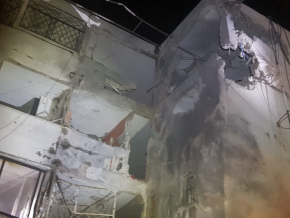IMO this is not possible. Iran can't be rooted out because it's an important regional player in it's own right and because of other issues. Any lasting peace has to include Iran; it can't be excluded; irrespective of how the U.S, Israel and the others continues to try to isolate Iran.The Arab nations provide a security to force work alongside Israeli security forces to root out Hamas, Hezbollah and any other Iranian influences.
As for Hamas; Palestinians selected it over Fatah which they saw as feeble, incompetent and corrupt. They have to be given a better alternative to Hamas. As long as there is no Palestinian state and as long Israel continues to pursue its policies; Hamas will have its narrative.
Hezbollah has long transitioned from just being a Shia organisation supported by Iran. It's firmly part of the Lebanese political landscape and although its power base lies with the Shia population; it would a mistake to assume it has absolutely zero support from other ethnic groups. It would also be a mistake to assume that Hezbollah can be easily done way with.
There has been little to no discussion on the root causes of the longstanding tensions which exist and which have for so long affected not only the region but the rest of the world. If we objectively look at the roots causes; perhaps we can start looking at viable solutions. Assuming it's in the interests of all the players to really have a solution which ultimately leads to peace,
Who secures the region from threats within and from outside countries like the U.S? We saw how destabilising and devastating the Iraq invasion became and we see what's happening in Yemen. We also saw what happened in Syria; various players meddling for their own interests.with the aim of securing the region from aggression from the likes of Iran and others.
I see Iran as being part of the problem but it is is also part of the solution and other countries are also part of the problem. The fact the the UAE has engaged in talks with Iran is a good sign and is telling [it wouldn't have done so without the go ahead from Saudi]. What is needed is dialogue and compromise. Naturally there will be parties - within and outside the region - who want things to remain as they are.
There has been attempts in the past; beyond the Abraham Accords which is great as a PR exercise but ultimately does little to resolve key regional issues. For the Arabs and Israel to really work together for a common good; a major obstacle remains the Palestinian issue. Unless or until it is resolved; peace will be elusive. The blame game will go on and some will claim a monopoly on various things but there will be no peace - assuming all the parties actually want peace.I think it's in Israel's and the Arab states common interest to start working along these or similar lines.
Last edited:


